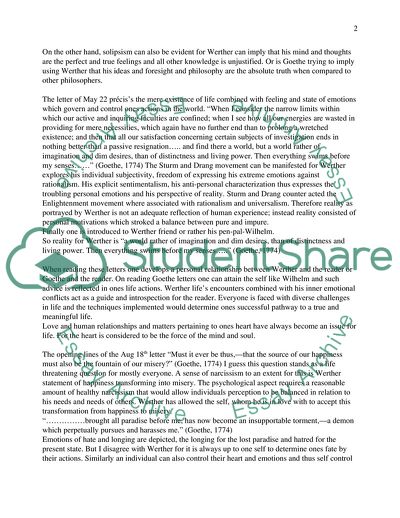Cite this document
(Goethe The Sorrows of Young Werther Essay Example | Topics and Well Written Essays - 3040 words - 10, n.d.)
Goethe The Sorrows of Young Werther Essay Example | Topics and Well Written Essays - 3040 words - 10. Retrieved from https://studentshare.org/literature/1712966-literature
Goethe The Sorrows of Young Werther Essay Example | Topics and Well Written Essays - 3040 words - 10. Retrieved from https://studentshare.org/literature/1712966-literature
(Goethe The Sorrows of Young Werther Essay Example | Topics and Well Written Essays - 3040 Words - 10)
Goethe The Sorrows of Young Werther Essay Example | Topics and Well Written Essays - 3040 Words - 10. https://studentshare.org/literature/1712966-literature.
Goethe The Sorrows of Young Werther Essay Example | Topics and Well Written Essays - 3040 Words - 10. https://studentshare.org/literature/1712966-literature.
“Goethe The Sorrows of Young Werther Essay Example | Topics and Well Written Essays - 3040 Words - 10”. https://studentshare.org/literature/1712966-literature.


